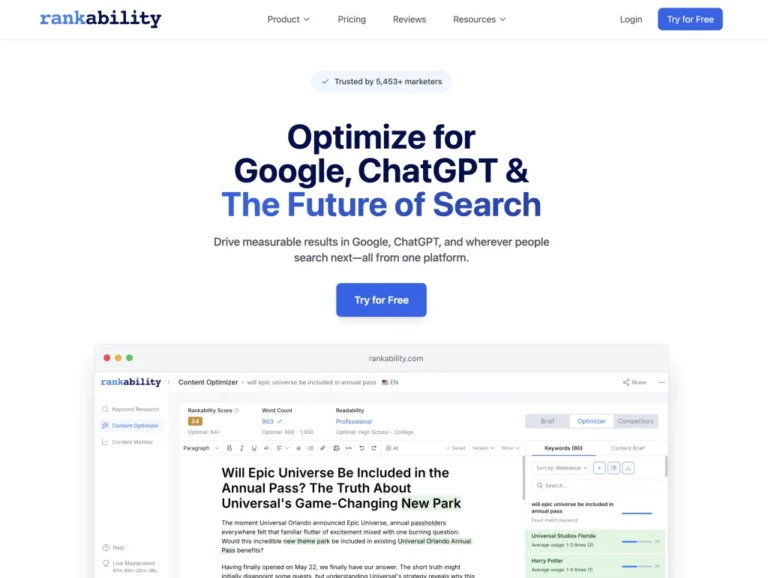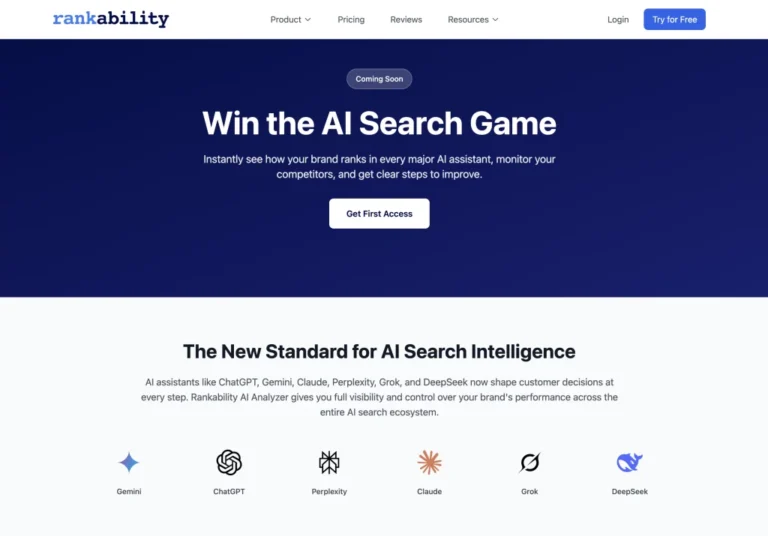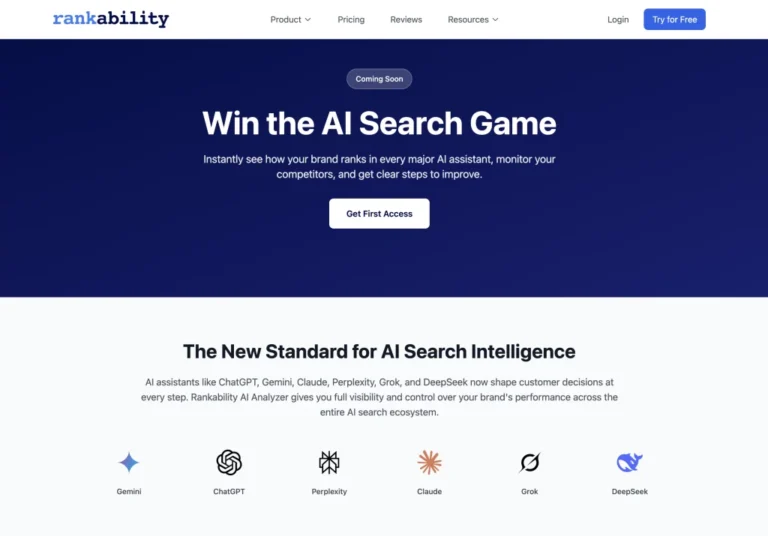Surfer SEO Was Acquired: What It Means for SEO Agencies

On October 21, 2025, Surfer SEO announced that it had been acquired by Positive Group, a European SaaS company formerly known as Sarbacane Group. The deal adds Surfer to Positive’s expanding portfolio, which already includes products like Rapidmail, User, and noCRM.
Surfer SEO Was Acquired. Meet Rankability, The #1 Alternative.
While the financial terms weren’t disclosed, the move marks another example of consolidation in the SEO and marketing software space — a trend that’s accelerating as AI transforms how content is created, optimized, and discovered.
In this article, we’ll unpack the details of the acquisition, what it could mean for agencies that rely on Surfer, and the broader implications for SEO tools in the age of AI-driven search.
1. What Happened
According to the official announcement from Positive Group, Surfer joins the company’s ecosystem as its “AI-powered search visibility” division, helping to extend Positive’s footprint “from email and CRM to AI-driven visibility across search and generative assistants.” Surfer’s leadership team — including co-founders Lucjan Suski, Michał Suski, and Tomasz Niezgoda — will remain with the company.
The press release highlighted:
- Over 150,000 active users and 12,000 customers worldwide
- Strong adoption in North America and Europe
- An average of 25% year-over-year growth between 2021 and 2025
The acquisition reinforces Positive Group’s strategy to assemble a full-funnel marketing suite, integrating channels like email, CRM, and now SEO and AI visibility.
2. Why Companies Are Consolidating SEO Tools
The acquisition follows a pattern we’ve seen with other marketing platforms:
- HubSpot acquiring marketing analytics startups
- Semrush expanding into AI content tools
- Ahrefs building an entire search engine ecosystem
There are good reasons for this:
- Cross-selling: Combining tools creates more ways to monetize users across a suite.
- Shared data infrastructure: Integrating tools can improve targeting and personalization.
- Competitive moat: Consolidation reduces competition and creates bigger brand ecosystems.
But there are trade-offs. When a tool becomes part of a larger portfolio, product roadmaps, pricing, and priorities can shift to align with broader business goals — which may or may not match agency needs.
3. What This Could Mean for Agencies
For agencies, tool consolidation can have both upsides and potential friction.
Upsides:
- Access to broader integrations (email, CRM, analytics).
- More stability and long-term funding.
- Expanded support and documentation resources.
Potential challenges:
- Pricing changes: Portfolio products often move toward bundled pricing.
- Roadmap shifts: Feature updates may serve larger cross-product goals.
- Integration realignment: APIs or partner connections can be restructured.
- Support layers: Larger organizations often have slower response times and less direct feedback loops.
For most agencies, none of this is inherently bad — it just means it’s worth paying attention to how the platform evolves over the next 6–12 months.
4. The Bigger Picture: SEO Tools in the AI Era
Beyond this deal, the SEO software landscape is changing fast.
AI search assistants like ChatGPT, Gemini, and Perplexity are becoming new discovery channels, forcing SEO platforms to adapt beyond traditional blue links. We’re already seeing tools add AI visibility tracking, generative ranking diagnostics, and content scoring powered by LLMs.
The future of SEO software will likely be defined by:
- How well tools measure AI-answer visibility (not just SERPs).
- How fast they adapt to new search behaviors across chat interfaces.
- How effectively they help agencies scale without losing content quality.
Consolidation is part of that evolution — but so is specialization. Some companies will build broader suites, while others will stay focused on doing one thing exceptionally well.
5. What To Do If You Use Surfer SEO
If your agency currently uses Surfer SEO, you don’t need to rush to make changes. However, it’s smart to take a few simple steps now:
- Export your data — briefs, keyword lists, and content scores.
- Review your contract or renewal terms.
- Note what features your team depends on most.
- Monitor upcoming updates and pricing changes.
Doing this ensures you have full visibility and flexibility — whether you stay with Surfer or explore alternatives later.
6. Final Thoughts
The Surfer SEO acquisition by Positive Group reflects where the marketing SaaS industry is headed: more integration, more automation, and more emphasis on AI.
For agencies, this is a moment to stay proactive — evaluate tools not just for their features today, but for how they’ll evolve in the next era of AI search visibility.
And if you’re looking for a platform that’s independent, agency-first, and built specifically for optimizing content across both Google and AI assistants, check out Rankability.
The post Surfer SEO Was Acquired: What It Means for SEO Agencies first appeared on Rankability Blog.



